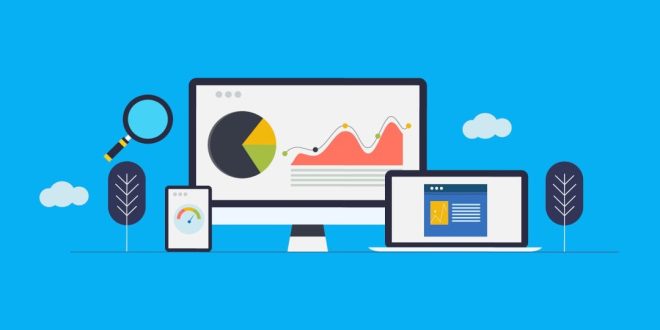In recent years, artificial intelligence (AI) has emerged as a game-changer in the digital marketing world, transforming the way businesses engage with their customers and achieve their marketing goals. From personalized user experiences to efficient content creation, AI is proving to be a powerful tool for enhancing digital marketing strategies and delivering tangible results. In this context, let us delve deeper into the BOT world and see how it has changed the game.
AI in Digital Marketing
Digital marketers wield AI as their superpower, automating processes, personalizing customer experiences, and crafting targeted campaigns. For example, they can use AI-powered chatbots to provide instant and personalized customer assistance, creating seamless brand interactions that leave customers in awe. With data-driven insights and cutting-edge AI algorithms, digital marketers deliver exceptional results, propelling them to hero status in the fast-paced world of digital marketing.
While AI is a powerful tool, it is the human touch that truly elevates digital marketing to heroic heights. Marketers understand that AI is only as effective as the data it receives and that it lacks empathy and creativity. They bring their human expertise to the table, infusing emotion and creativity into their marketing strategies, connecting with customers on a deeper level. Together, digital marketers and AI create an unbeatable duo, revolutionizing the marketing landscape and delivering unmatched value to businesses and customers alike.
How AI is Helping Marketers Revolutionize the Digital World?
By leveraging AI, marketers have transformed the digital world to a great extent and the following points provide the evidence.
- Real-Time Assistance to Reshape the Future
Digital marketers wield the power of AI-powered chatbots as their strategic advantage for unmatched customer support! Picture a world where a chatbot proactively anticipates and fulfills customer needs with personalized product recommendations, while also providing instant answers and a seamless purchase process. With machine learning driving continuous improvement, the chatbot becomes a marketing superhero, freeing up marketers to focus on strategic initiatives. This revolutionary synergy of marketers and chatbots creates a new paradigm of customer experiences, propelling businesses to unparalleled success in the digital marketing arena.
For example, H&M, the global fashion retailer, uses chatbots to provide instant support to its customers. Their chatbot, called “Kik,” engages in conversations with customers, answering their questions and providing fashion advice. Kik’s machine learning algorithms analyze customer interactions to provide personalized recommendations, improving the overall customer experience.
- Data-Driven Insights for Better Decision Making
Empowered by the capabilities of AI analytics, digital marketers harness its potential to unlock valuable insights into customer behavior. For instance, Amazon Prime utilizes AI analytics to analyze customer data, including purchase history and browsing behavior, to deliver personalized recommendations and targeted promotions. This enables digital marketers to drive exceptional customer experiences, outperform the competition, and achieve marketing success with precision and impact.
Also, Coca-Cola uses AI-powered analytics to analyze customer behavior and preferences to create personalized marketing campaigns. By leveraging AI insights, Coca-Cola has been able to increase brand loyalty and engagement among its customers, resulting in increased sales and revenue.
- Automation of Repetitive Tasks
Marketers are revolutionizing the way they work by harnessing the power of AI to automate mundane tasks. For instance, brands like Coca-Cola have used AI to streamline their social media management, automating content management and scheduling. By doing so, marketers focus on more strategic initiatives, impactful content generation that drive results, leading to increased productivity, cost savings, and improved business outcomes. Embrace the future of marketing with AI as your ally and watch your campaigns soar to new heights!
On the other hand, Netflix leverages AI and machine learning algorithms to personalize its content recommendations to its users, allowing them to discover new shows and movies based on their viewing history and preferences.
- Programmatic Advertising
Programmatic advertising is a type of online advertising that leverages AI algorithms to automate ad buying, placement, and optimization in real-time. With programmatic advertising, digital marketers use AI to target specific audiences with personalized messages, optimize campaigns, and adjust ad placements to improve performance.
For instance, Amazon uses programmatic advertising to deliver targeted ads to customers based on their browsing and purchase history, increasing the effectiveness of their advertising efforts.
- Voice Search Optimization
The rise of voice search is changing the way people search for and consume information online, and digital marketers are leveraging AI to optimize for this trend. By using natural language processing (NLP) and machine learning, AI can understand and interpret user queries, helping marketers to create content that matches user intent and improves their chances of ranking in voice search results.
Brands like Domino’s Pizza have leveraged voice search optimization to create a seamless ordering experience for their customers, improving customer satisfaction and driving revenue.
- Search Engine Optimization (SEO)
AI-powered SEO tools are transforming the way digital marketers optimize their websites for search engines. By using machine learning algorithms, AI-powered SEO tools can analyze large amounts of data, identify patterns, and provide actionable insights to improve website ranking and visibility.
For instance, Moz‘s AI-powered tool “Page Optimization” analyzes content on a webpage, recommends relevant keywords, and suggests changes to improve the page’s search engine ranking. By leveraging AI-powered SEO tools, digital marketers save time and resources while optimizing their websites for maximum search engine visibility.
- Content Creation
AI-powered content creation tools are helping digital marketers create high-quality content quickly and efficiently. These tools can analyze data, identify patterns, and generate content ideas and even complete pieces of content. For instance, tools like ChatGPT, Articoolo and Wordsmith use AI algorithms to create unique, SEO-friendly content based on a user’s input. By leveraging AI-powered content creation tools, marketers can create more content in less time, freeing up resources to focus on other aspects of their marketing strategy. However, it is important to note here that these tools are not trustworthy and authentic. They only respond to user input and the content provided needs to be refined, proof checked and modified for the best outcome.
- Social Media Management
AI-powered social media management tools are revolutionizing the way digital marketers manage their social media presence. These tools can automate tasks like scheduling posts, monitoring social media channels, and analyzing engagement metrics. For example, tools like Hootsuite and Sprout Social use AI algorithms to analyze social media data and provide insights into user behavior and preferences. By leveraging AI-powered social media management tools, marketers can save time and resources, and focus on creating impactful content that resonates with their target audience.
AI in Digital Marketing – The Challenges
AI has enormous potential to transform digital marketing, but it also poses significant challenges that businesses must address.
- Lack of Human Touch
Marketers can automate many aspects of digital marketing, such as content creation and customer service by using AI-powered chatbots, but it can also lead to a lack of human touch. Many customers still prefer to interact with human beings, and businesses must strike a balance between using AI to improve efficiency and providing human interaction to ensure a positive customer experience.
- Ethical Considerations
AI in digital marketing raises ethical considerations that businesses must address. For example, using AI to create fake news or manipulate public opinion is unethical and can have negative consequences for society. Businesses must ensure that their use of AI is ethical and aligns with their values and mission.
- Data Privacy and Security
One of the most significant challenges in implementing AI in digital marketing is ensuring that customer data is secure and used ethically. Businesses must adhere to strict data privacy regulations such as the General Data Protection Regulation (GDPR) and the California Consumer Privacy Act (CCPA). Moreover, they must ensure that the AI systems they use are transparent and trustworthy to avoid any negative backlash from customers who may feel their data is being misused.
- Bias and Discrimination
If the data is biased, the AI system will be biased as well. This can result in discrimination against certain groups of people, such as those from marginalized communities. Businesses must take steps to mitigate bias in their AI systems to ensure they are fair and equitable.
- Cost
AI technology is expensive, and implementing it can be a significant investment for businesses. This can be a challenge, especially for smaller companies with limited budgets. Businesses must carefully consider the costs and benefits of implementing AI and ensure that the ROI justifies the investment.
To succeed in implementing AI, businesses must overcome these challenges and ensure that they use AI in an ethical, transparent, and trustworthy manner.
By doing so, they can unlock the full potential of AI and stay ahead of the competition in the digital marketing landscape.
- Difficulty in Gauging ROI
Since isolating the impact of artificial intelligence from various other factors can be difficult, measuring the ROI of marketing campaigns driven by AI can be challenging as well.
To succeed in implementing AI, businesses must overcome these challenges and ensure that they use AI in an ethical, transparent, and trustworthy manner.
By doing so, they can unlock the full potential of AI and stay ahead of the competition in the digital marketing landscape.
- Lack of Diversity in Data
The lack of diversity in the data used to train AI models can result in biased algorithms that perpetuate existing inequalities. For example, if an AI system is trained on data that is predominantly from one demographic group, it may not be able to accurately predict the behaviors or preferences of other groups. To address this challenge, businesses must ensure that the data used to train their AI systems is diverse and representative of the population they are serving. This can help to mitigate bias and ensure that their AI systems are fair and equitable for all users.
- Lack of Regulation and Standards
The lack of regulation and standards in the development and use of AI in digital marketing can pose ethical challenges for businesses. There is a need for clear guidelines and standards that outline the ethical use of AI in marketing, especially in areas such as data privacy, bias, and discrimination. Without such guidelines, businesses may struggle to ensure that their use of AI aligns with ethical principles and societal values. As AI continues to advance, it is essential that businesses and policymakers work together to develop and enforce regulations and standards that promote ethical AI use in digital marketing.
Finding the Right Balance
As you can see, the benefits of AI in conjunction with human expertise are vast and varied. By leveraging AI to automate tasks and analyze data, digital marketing agencies can improve their efficiency and effectiveness.
However, we strongly believe that human expertise is still essential for making strategic decisions and providing the creative, nuanced touch required in the field of digital marketing.
So, the key to success in digital marketing is finding the right balance between AI and human labor. By combining these two forces, you can create campaigns that are both data-driven and customer-focused, ultimately leading to greater success and satisfaction for both you and your clients. So why not embrace the power of AI and see how it can enhance your digital marketing capabilities? Contact us today to know more.
Read more articles at Posting Point
 Posting Point
Posting Point

